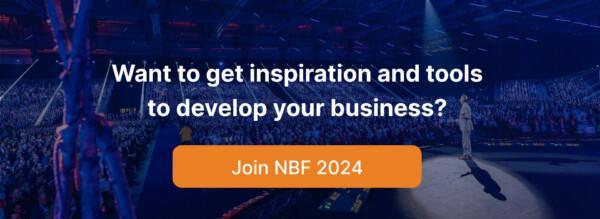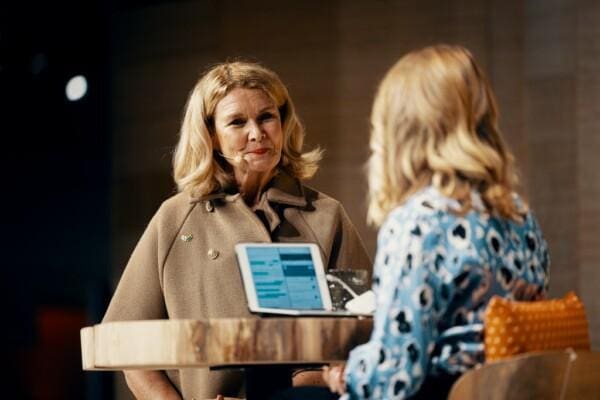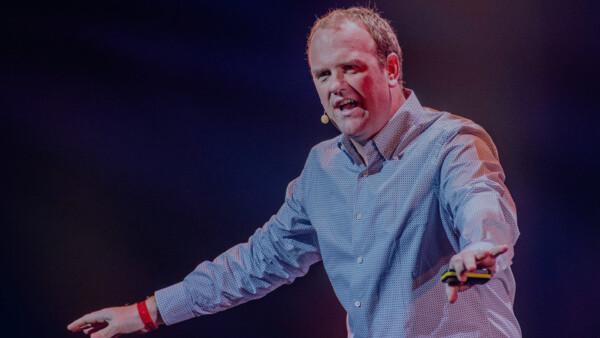4Apr2024
Inspiration and knowledge are all around us, but only a few of us can spot what is important and turn that into action. Business leaders struggle with staying ahead in a world that is constantly changing and we wanted to find out how they do it. We were able to get a hold of five leaders and experts who shared their strategies with us in four different areas:
- Staying Informed and Ahead
- Leveraging Technology
- Learning from Failure
- Inspiration and Action
Let’s explore how they stay informed, leverage technology, learn from failure, find inspiration, and translate all of this into action!
Staying Informed and Ahead
Focus on What is Relevant
We asked our interviewees how they stay informed and ahead in their industries. Ami Paanajärvi, Partner and Head of Roschier‘s EU & Competition team in Helsinki, shared with us how this is handled in a law firm:
“As a law firm, we have several information sources (including subscription-based) and each of our specialist teams also have practice area-specific sources. However, if I am honest, I think we suffer from major information overload. So much is constantly going on. So to stay ahead you also need to be selective and focused in your information gathering. For us, this in principle means that we need to prioritize the type of info that is most relevant to us.”
How then, can we distinguish the most relevant information?
“I think I speak for most of us if I say that a fairly simple way of staying focused is trying to mainly keep informed on what the world is looking like for our clients. They are the reason we exist and thus what is important for them is important for us.”
The CEO of VTT Antti Vasara has a similar experience with the overflow of information available to us:
“Today’s world and all the information tools available to us is just a toy store for a curious person. There are so many wonderful and interesting things happening and I would like to know about all of them. But how to find the time? I have tried all kinds of services that synthesize information, reading newsletters, scanning news aggregators, etc. It is easy to get buried under the avalanche of information. Currently, I am trying a new way (for me) of handling this, i.e., to pick just one or two specific topics and focus on them. Easier then to find the good sources of information and get a bit deeper when you accept that you can’t be all over the place.”
Look for the Strangeness
Professor, author, and member of multiple boards of directors Alf Rehn suggested an opposite approach. Instead of narrowing down, we should open our gaze to alternative sources of information:
“The problem of trying to understand the future is that we’re always caught up in what we already know. There’s always this tendency to go to the places we’re used to going, read the books other people read, and take out subscriptions to magazines other people take out subscriptions for too. I always emphasize that to truly stay ahead, we need to confuse this pattern. We need to start looking where other people aren’t looking. To go to the sources we would not normally go to.”
However, Alf also acknowledges a problem that many CEOs face:
“For a lot of the CEOs I work with, the challenge is that there’s so much to keep up with the already known. There’s very little time to actually stay ahead.”
Going to the most popular business magazine in your country “is not it.” Instead, Alf suggests that we look for sources from other countries and industries. He introduced us to the term ‘Input Strangeness Quotient’:
“The ISQ. It’s sort of a joke, but it’s my way of saying, if you haven’t worked out a way to get strangeness into your inputs, you’re not actually doing your jobs trying to stay ahead.”
Leveraging Technology
Utilizing new technologies is an important part of staying ahead in your industry. We asked our experts how their organizations have integrated new technologies and how they decide on what technologies to adopt.
Christian Hohenthal, President and CEO of Sponda, emphasized the importance of data and sustainability goals:
“Our strategy centers on digitizing all operations and leveraging data to drive business growth. This necessitated a transition to cloud services, which forms the foundation for our future AI utilization. In selecting technologies, we prioritize those that streamline operations, boost efficiency, and elevate customer experience while aligning with our sustainability goals. For instance, our recent shift to cloud infrastructure resulted in an impressive 84% reduction in carbon emissions. These technological advancements not only optimize processes but also reinforce our commitment to environmental responsibility.”
Indeed, technologies can do much more than just boost the bottom line. Ville Korpinen, the Head of Client Centricity at Roschier, gave his perspective on how technology can change the way we work for the better by solving problems:
“Often, it’s not about technology but more about changing the way people have grown accustomed to work. To this end, we try to approach new technology in a way that we have a problem looking for a solution and not the other way around. For us to be successful in the implementation of the “tech-enabled new ways of working” we must have empathy for the people doing the work and make sure we thoroughly understand the problem we are solving. This gives a good starting point to test new technologies on a smaller scale and make sure the problem-solution fit exists before committing to larger implementations. These first tests also provide invaluable success stories that can be used to drive change within the organization.”
Similarly, Antti told us about the use of technology in different areas to improve work:
”All VTTers are encouraged to try out AI and find ways to benefit their work. We are all about new technology and we cover a very wide range of areas. In each research area, we have very specific technologies where we go very deep and which also require different kinds of supporting technologies such as AI, immersive technologies, cloud computing, gene sequencing, etc. We encourage each of the research areas to “go deep” in a way that serves them the best way but that of course means then that we have quite a spectrum of all kinds of tools in use.”
Additionally, Ville pointed out the importance of security and suitability when adopting new technologies:
“As we operate in an industry where trust is key, we are naturally extremely demanding on the security aspects of any new technology. At the same time as the number of different solutions continues to grow, the ability to integrate them together also gains more importance. However, beyond these considerations, it is still at the end of the day a process of understanding the problem and testing with limited risk if the solution works for us or not. Benchmarking and references can of course offer some insight but as no two firms are alike it’s not possible to gauge a solution’s suitability for us based on its performance in another law firm.”
Learning from Failure
Testing and failure are an important part of business. We asked the interviewees to tell us about a setback they’ve faced and how it led to learning and change. Ami shared her thoughts on the meaning of failure:
“Generally setbacks, challenges, and mistakes are in fact the best way to learn. I really don’t like to talk about failures as very seldom any situation turns into a complete failure. Luckily lawyering is usually not so black and white as, for example, baking where if you burn the cake or use salt instead of sugar the result can probably be termed a failure.”
She also told us about the challenges she has faced as a leader:
“I have countless examples of situations that have been less than optimal and how we have learned from them. For me personally, the building of my team has been loaded with ups and downs. It’s a question of finding the right people and motivating them to stay on long enough. That sounds easy but in my experience, it’s almost the hardest part of my job. And when you realize you have misjudged—either employed the wrong person for your team or the best person you feel has the most promise decides to leave—it hits hard. We are a people’s business, our greatest asset is our people, and having good people to work with is everything in this profession. So you get the point, people are pretty important. Every time (and believe me there have been many) I feel my people leadership has failed, I try to be pretty clear on what went wrong and learn from it. Hopefully, gradually I learn to make better choices and also understand and read people better when considering them for my team.”
Antti reminded us of something very important when it comes to failure:
“If you don’t fail from time to time, you aren’t trying hard enough to make a difference.”
Sometimes accidents and setbacks can prove quite fruitful, as Antti further explained:
“Science is full of examples of accidental discoveries and weird side effects that prove to be really useful later. At VTT we have several areas where we have worked for a long time on some technologies without finding major breakthroughs but luckily we haven’t been disheartened by the setbacks but kept on investing in those areas. We wouldn’t have quantum computers, medical sensors, or hydrogen technologies at VTT without this perseverance and vision. How to benefit from setbacks and failures? Continue to be curious, be ready to learn fast, and keep on asking “why not?”.”
Inspiration and Action
Inspired by the People around You
Inspiration can come from many places, but our interviewees found much of it from the people around them. Christian highlighted how people and collaboration can feed inspiration and innovation in the right conditions:
“I firmly believe that innovation and creativity flourish when individuals and teams are fully engaged and present in their work environment. In today’s hybrid work environment, the importance of being present has become increasingly apparent, playing a crucial role in both personal and organizational success. I see offices serving as gathering places, facilitating interactions that inspire collaboration and creativity. Being present involves not only welcoming new ideas but also daring to explore uncharted territories. Effective leadership, from my perspective, relies heavily on this kind of presence. It’s about leading by example, establishing a genuine connection, and inspiring others to join in.”
Ami also discussed how people can be a source of inspiration:
“I read a lot and I listen to others (podcasts, NBF and other events). I also talk to my partner colleagues and try to learn from them. I am lucky as many of the people I share my professional home with are very inspirational. I get energy from watching them work and do a great job. Daily I admire our fantastic reception team and our catering team—all of them super strong professionals and we are incredibly lucky to have them. They are the soul of our firm.”
She also told us about a surprising experience with a client:
“For business models and leadership examples, I learn a lot from our clients. I remember when I was still considerably younger, a hard-working senior associate striving for partnership and expecting my first child. We were pretty busy at the office and I was worried about what clients thought of my ability to deliver as I was considerably nauseous and tired… In a particularly “hairy” moment, I had to tell a client that I was pregnant and no one at the firm knew yet (we were traveling together for the client’s case and I was throwing up all over the place!) and her reaction was golden. She said there was nothing I could do to destroy her utmost trust in my capability and she had my back. After she knew what my situation was, she always insisted to the partner (my boss) in charge of the case that no calls (teams did not exist at the time) should take place before 10 am or after 5 pm. I was so grateful and touched that I promised to live up to her example and try to make sure that when I had leadership responsibilities, my team knew they could always tell me if they needed me and I would deliver. I know that does not happen all the time but I really do try my best to support them.”
Connect the Dots and Experiment
Turning inspiration and learning into action is a tricky feat. One that requires you to not only keep your eyes open but make sense of everything you see. Antti discussed this in his answer:
“I think my own strength is in being able to connect dots and find the meaning between seemingly unconnected topics. I get my best moments of spark and inspiration when I talk to smart people, try to understand what they are thinking, and then find the connecting ideas between what they are talking about. Getting to action always requires that I can find a good team who shares the excitement.”
Alf also warned us to not only spot individual instances:
“It’s not enough to have spotted something, you also need to spot a pattern. The trick lies in paying attention to the oddities. And also thinking, is this actually a trend? Are there actually several things happening here, or am I just spotting a quirky one-time phenomenon? Just because you’ve spotted something doesn’t mean that you’re done. We have to start connecting the dots. Start connecting what is actually going on here.”
To be able to spot the oddities and start making these important connections, he gave us a tip:
“Notebooks are incredibly important to keep track of these things. This thing surprised me, keep tracking this. Otherwise, it’s so easy to only spot what everyone else spots. Everyone talks about AI, I’ve also talked about AI, I will go to an AI lecture, I will read an AI book, and all of a sudden, some completely different technology has emerged and you didn’t notice.”
When we have our observations jotted down and connections are made, how do we act on them? At first, Alf said that this was basically an impossible question. However, he did give a very compelling suggestion:
“On a company level, I believe that it’s important that companies develop both a culture of experiments and experimental skills. As a researcher trained in experiments, I am often disappointed in the sloppy and non-experimental way companies claim to do experiments. A real experiment is born out of curiosity and out of a “what if” question, then designed around something you want to learn, then executed well, and the learnings are actually documented. Not enough companies make a report on their data and what they learned.”
Importantly, only one good experiment doesn’t suffice:
“It’s not just about one experiment, it’s about a chain of experiments and building upon experiments. Science is like the world’s biggest layer cake of things we’ve tested and the good stuff we kept and kept experimenting on. That’s also what I believe very good organizations need to be. Learning organizations that layer experiments.”
Nordic Business Forum was founded with the aim of providing knowledge, inspiration, and connections to business leaders. The keynotes you hear and the people you meet can help you develop and grow both personally and in your business. The people we interviewed in this article will be attending Nordic Business Forum 2024 in September, will you join them?

 by:
by: 

